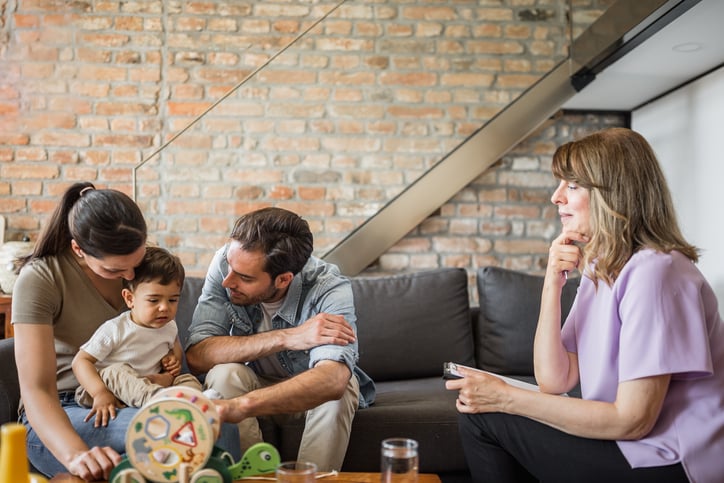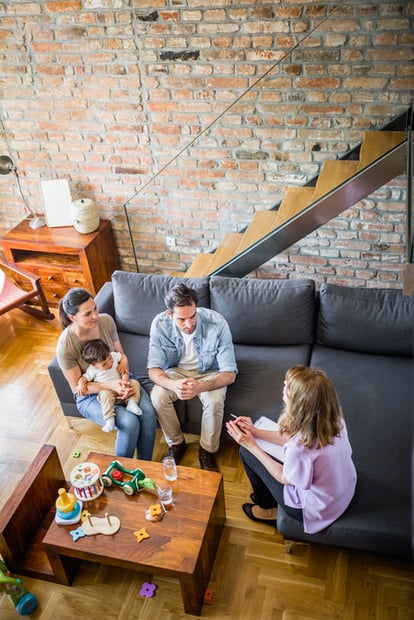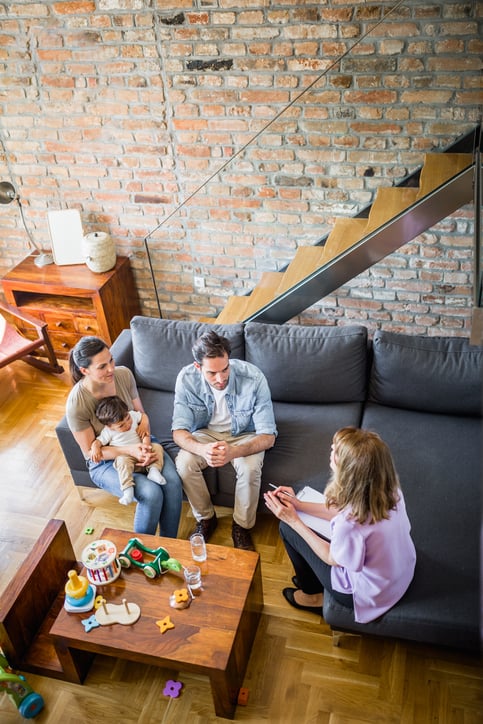Three Must-Haves for BCBAs to Create Effective Family Collaboration
As BCBAs we need to include three must-have areas in our family collaboration models, to make real progress in therapy.
Teamwork makes the dream work.
Have you ever heard that statement before? It’s often applied to accomplishing tasks, creating something wonderful, or finishing a job to completion. Most BCBAs have family coaching or family meetings often and we bill insurance for it. We know there is great value in teaming up with families… but how effective and impactful is your coaching or your communication?
Do you ever feel like you are on a trip but you have packed all the wrong things for your stay? You open the bag and find that you don’t have what you need.
Let’s unpack this family collaboration suitcase and see how addressing three major areas could improve our "stay."

Boost Communication:
When working with a family, whether they are new or you have known them for years, ensure that you know how they like to communicate. Do they prefer phone calls, video calls, or email? Does one parent prefer to talk more than the other? Is there a cultural norm that you might not understand that affects their communication? Establish this information early and learn about their family dynamic.
When meeting with the family, you can communicate more effectively by asking questions. BCBAs are often quick to jump to information or updates on the therapy data, forgetting to stop and ask questions first.
A few of the best questions you can ask a family are listed below:
- How are you feeling this week? (Asking the family how they are doing, not just inquiring about their child.)
- How is your child doing this week physically? Emotionally?
- Are there any new behaviors or patterns developing for your child this week?
- What is your top need this week in regard to your child?
- What would be most helpful to you?
By beginning a meeting or coaching time with a “check-in” you break down barriers, settle anxieties, and demonstrate that you are here to support the family. In turn, the family feels heard, cared for, and valued. Ensure that you take notes and that they know you keep the notes for reference.
Provide Effective Coaching:
Once you have made it through some of the questions listed above, begin to work your way into therapy updates for their child. Get a "feel" for your client’s family early on by showing them some data collection, describing it, and talking about a few of the methods you use in therapy to work through behaviors or communication barriers.
You must pay attention to language cues and body language cues. Are they closing off when you show them graphs and data, or are they eager to look more and ask questions? Are they hyper-focused on one topic or issue? Do they seem interested in the methods you are using for therapy services? These are important questions to ask yourself as a BCBA.

A few of the best tips for walking a parent through therapy updates are listed below:
- Highlight the progress their child is making, but don’t shy away from the challenges.
- Make it clear to families what is occurring in therapy…the good, bad, and ugly.
- You don't always need to print out graphs or show data collection sheets to families, as this can be overwhelming to some.
- Use layman's terms like “increasing or decreasing” or “high intensity or low intensity,” but be careful not to make the family feel inadequate or belittled.
- Check for understanding as you share information by asking, “Does that make sense?” or “Are you tracking okay with me?”
- Provide printouts or hard copies of things. Many families don’t keep up with attached documents in emails.
- Consider walking the family through a parent training curriculum. There are several comprehensive ones that provide a great place to start such as the “One Year ABA Parent Training Curriculum” by Heather Gilmore.
- Be encouraging throughout the delivery of information and coaching. Continually remind them that you are in this together, that it's always okay to ask questions, that learning new things takes time and most of all that they are doing a great job.
By utilizing a few of the tips above, your family coaching will become more effective, thorough, and enjoyable for all involved.
Wrap Back Around:
When it is time to have another meeting the following week, or session, make sure you wrap back around to check on the things previously discussed with the family. You can do this through an email, a phone call, or maybe at the very beginning of the next meeting.
 “Tie a bow” on the last family session by asking some of the following concluding questions and providing resources:
“Tie a bow” on the last family session by asking some of the following concluding questions and providing resources:
- How did you feel after last week’s family coaching session?
- How did your child do at home? Were you able to use or see any of the methods we talked about?
- Do you have any questions on those therapy methods now that you have tried them? What seemed to work well? What did not work well?
- How can I continue to support you in those methods going forward?
- Connect the family to helpful and quality resources, such as the STAGES® Learning Autism Resources & Community blog, to get new ideas and perspectives.
Family collaboration can be difficult for a myriad of reasons, but when done simply, systematically, and with a caring heart at the center of it all, it can be one of the biggest tools of client success in ABA therapy.
As BCBAs we must do better in our communication and coaching, bringing families into treatment plans and listening to their needs.
I encourage you to take a look into your family collaboration bag, unpack it, lighten it up, or add to it… and make sure you have everything you need for a successful stay when you meet with families!
Please share anything you have tried that worked especially well in collaborating with families of autistic children.
We hope you enjoyed the information in this article. Stages Learning also offers free downloadable resources to support teaching and learning with autistic individuals. Start with our free Picture Noun Cards and see our collection of other downloadable resources here!

Caitlin Sykora
Caitlin Sykora is a BCBA in the central Texas area with a passion for reaching and working with at-risk communities, utilizing ABA and the Verbal Behavior Approach. She has worked within various settings as a behavior therapist, district behavior analyst, clinical supervisor, and training coordinator for a private special education school in Haiti. When living and working in Haiti full-time, Caitlin found a deep eagerness to pursue better practices in international ABA services. Her research and professional focus has been training educational institutions on implementing ABA within their school system, integrating trauma-informed care and cultural humility into ABA practices, increasing the quality of clinical therapy services, and educating staff within the clinical setting. Caitlin is devoted to helping the Autism community learn more, do more, and love more!




